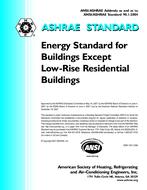Solar energy utilization in buildings may result in energysavings and energy production; however, solar gains in perimeterbuilding zones can result in overheating and an increasein air-conditioning energy use since they account for a significantportion of cooling load and therefore need to be accuratelycalculated. Building simulation software and energymodeling professionals use different degrees of simplificationsto compute the distribution of absorbed direct and diffuse solargains in interior building surfaces. In this paper, a model thatcombines ray-tracing simulation for the directly transmittedpart and modified radiosity for the diffusely transmitted partwas developed and compared to five different existing methodsfor calculating distribution of absorbed direct and diffusesolar gains in perimeter building zones. The impact on heatingand cooling loads, as well as on free-floating room air temperaturesfor typical rooms, is evaluated using a finite differencethermal network-based approach. The model was validatedwith experimental measurements in full-scale test officespaces, and several quantities were compared to EnergyPlus.Results and modeling errors are presented for different spaces,mass layers, and orientations for Philadelphia and Phoenixand provide useful insights on the effect of accuracy ofabsorbed solar gains distribution on energy modeling calculations.
Product Details
- Published:
- 2013
- File Size:
- 1 file , 6 MB
- Product Code(s):
- D-DE-13-012
- Note:
- This product is unavailable in Russia, Belarus


